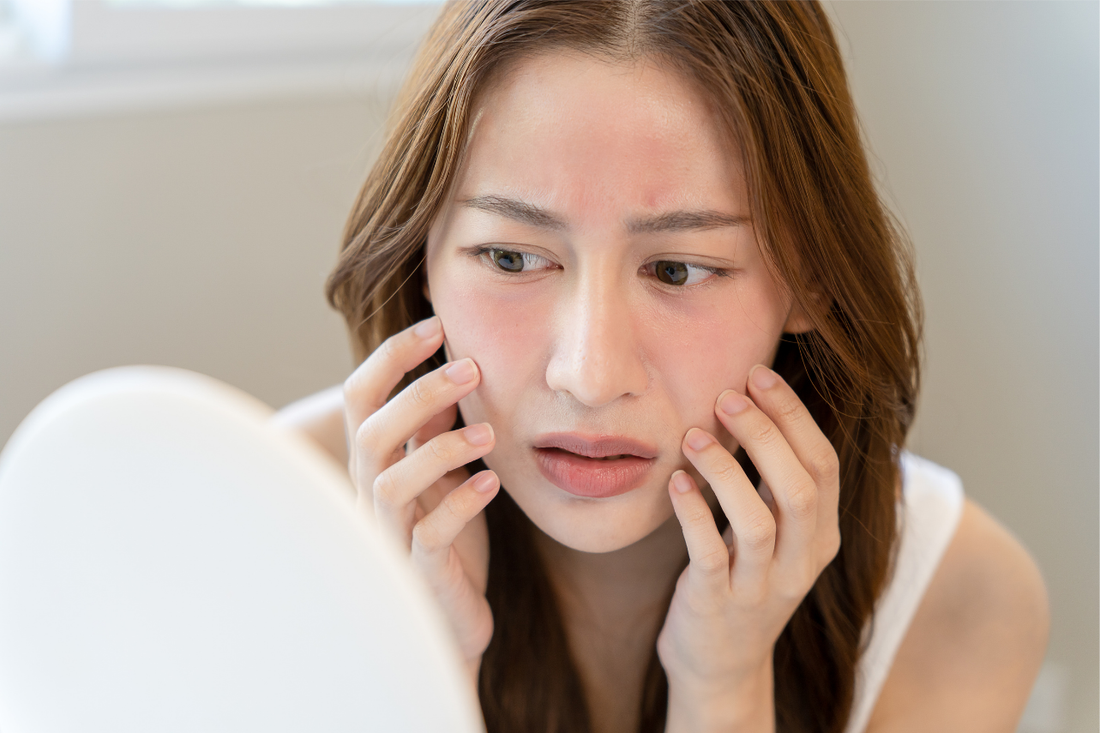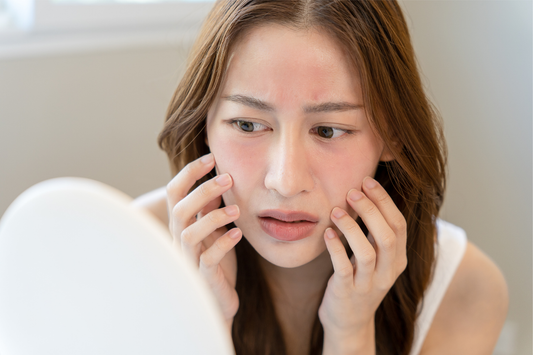Allergies can make life really difficult. If you suffer from allergies – whether to food, cosmetics, dust or something else – a product labeled "hypoallergenic" might sound like it will make your life easier.
And it might. Hypoallergenic products claim to cause fewer allergic reactions, and often they are created without use of specific allergens. While these products may indeed cause fewer adverse reactions, the truth about hypoallergenic skincare is more complex than most consumers realize.
The reality is that "hypoallergenic" has no standardized definition in the beauty industry. There are no Federal standards or definitions that govern the use of the term "hypoallergenic." The term means whatever a particular company wants it to mean. It's like the word "noncomedogenic" in this way.
The U.S. Food and Drug Administration (FDA) has tried off-and-on to regulate use of the word hypoallergenic, to no avail. There is now no regulation specifically defining or governing the use of the term "hypoallergenic" or similar claims. This means consumers must rely on their own research and ingredient knowledge when choosing truly gentle skincare products.
What ingredients do cause allegic reactions?
So what common cosmetic and skincare ingredients should you avoid? Understanding which ingredients commonly trigger allergic reactions is crucial for building an effective sensitive skin routine. Marie Claire and the American Association of Dermatologists have a useful lists, which include the following:
Parabens: The Controversial Preservatives
Parabens (including methylparaben, butylparaben, and ethylparaben) are synthetic preservatives used to extend product shelf life. While their safety remains debated in the scientific community, they can cause contact dermatitis in sensitive individuals.
Formaldehyde-Releasing Preservatives
Ingredients like Imidazolidinyl Urea and Diazolidinyl Urea (often sold under trade names like Germall I and II) are known contact allergens. The American Academy of Dermatology https://www.aad.org/ identifies these as common causes of allergic contact dermatitis, making them particularly problematic for sensitive skin types.
Hidden Allergens in Nail Products
Nail polish ingredients like phthalates and formaldehyde can cause unexpected facial reactions. Since nail products come into contact with your face through touching, these allergens can trigger dermatitis around the eyes, mouth, and other sensitive facial areas.
Shea Butter and Tree Nut Allergies
For individuals with tree nut allergies, shea butter can be problematic. While refined shea butter is generally considered safer, those with severe nut allergies should exercise caution and potentially avoid shea-containing products entirely.
How to Choose Truly Hypoallergenic Skincare Products
Since "hypoallergenic" isn't regulated, smart consumers need alternative strategies for finding gentle skincare:
Look for Patch-Tested Products Choose brands that conduct patch testing to verify their gentleness claims. Reputable companies will often provide this information on their websites or product packaging.
Prioritize Simple Formulations Products with shorter ingredient lists typically have fewer potential allergens. Look for formulations where you can understand the ingredients list.
Research Individual Ingredients Familiarize yourself with common allergens and irritants. When in doubt, consult with a dermatologist or allergist who can help identify your specific triggers through patch testing.
Building Your Allergen-Free Skincare Routine
Creating an effective sensitive skin routine involves more than just avoiding known allergens. Start slowly when introducing new products, testing one at a time to identify any reactions. That said, also give it enough time when testing new products. For example, COR Silver Soap is such a deep cleanser, it often draws out impurities in the beginning. Once this initial period is over, the results speak for themselves.
The Bottom Line on Hypoallergenic Skincare
While "hypoallergenic" products may indeed be gentler options, the lack of regulation means consumers must be proactive in researching ingredients and choosing reputable brands. By understanding common allergens and focusing on clinically-tested, dermatologist-recommended products, you can build an effective skincare routine that minimizes allergic reactions and supports healthy, clear skin.
Finally, remember that everyone's skin is different, and what works for one person may not work for another. When dealing with persistent skin allergies or reactions, consulting with a board-certified dermatologist is always the best approach for personalized care and treatment recommendations.
Oh, and as you would expect, Cor Silver Skincare products don't contain any of those allergy-causing ingredients.





